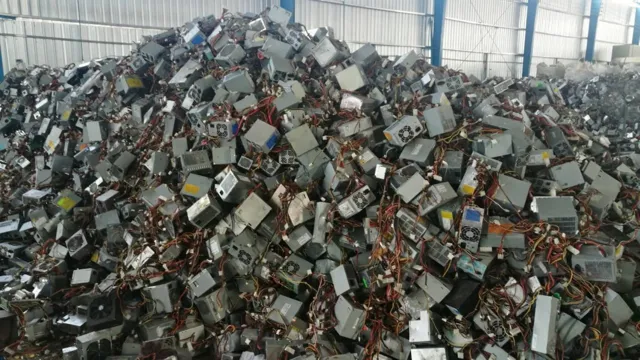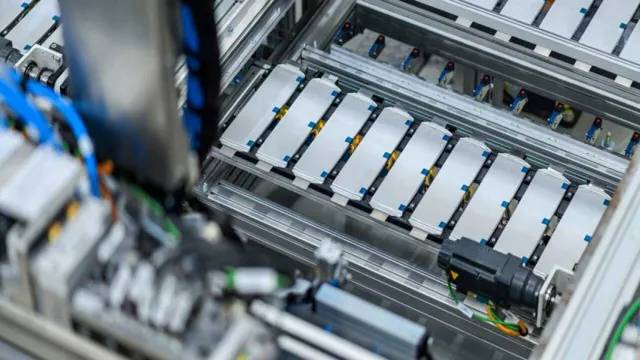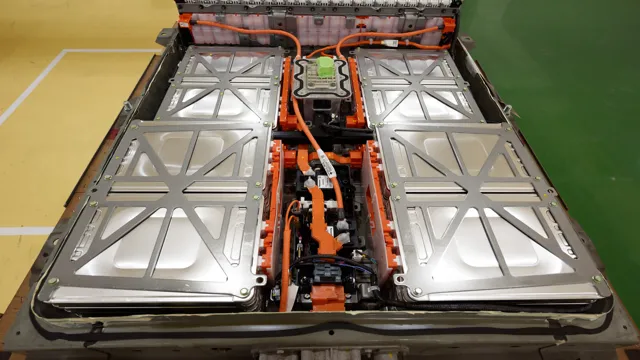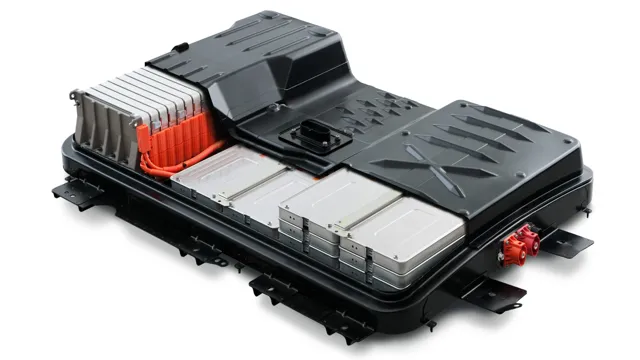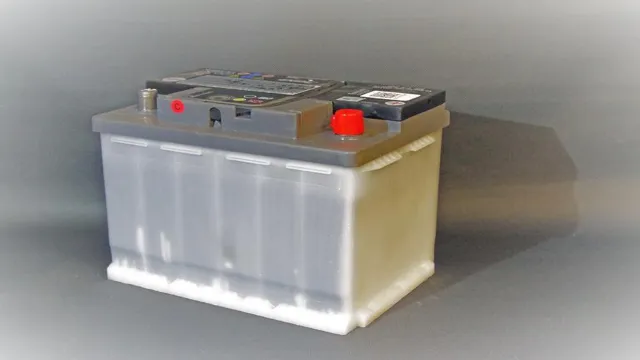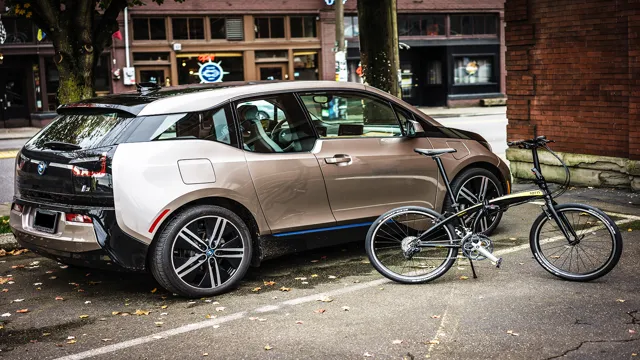The Shocking Truth: Examining Contamination Risks in Electric Car Batteries
As more and more people make the switch to electric cars, concerns around their battery technology continue to surface. One specific problem that many worry about is battery contamination. While electric car batteries are designed to be long-lasting and low-maintenance, any form of contamination can cause serious consequences.
So what exactly is electric car battery contamination and how can it impact the environment and your car’s performance? In this blog, we’ll explore the ins and outs of electric car battery contamination and what you can do to keep your car’s battery intact.
Causes of Battery Contamination
Contamination of batteries for electric cars is a serious issue that can cause major problems. There are several causes of battery contamination, including manufacturing defects, chemical reactions, and human error. Manufacturing defects can occur during the production of the battery itself or during the installation process.
This can result in the battery leaking or becoming damaged, which can cause it to become contaminated. Chemical reactions can also cause battery contamination. This can occur when the battery is exposed to extreme temperatures or when certain chemicals come into contact with the battery.
Additionally, human error can play a role in battery contamination. This can happen when the battery is mishandled or not properly maintained. It is important to take steps to prevent battery contamination, such as using high-quality batteries, properly installing them, and following maintenance guidelines.
By doing so, you can help ensure that your electric car’s batteries remain clean and running smoothly.
Environmental Factors
Battery contamination is caused by various environmental factors that affect the chemical components present in batteries. This contamination can cause serious harm to the environment and human health. One of the main causes of battery contamination is the improper disposal of batteries.
When batteries are discarded into landfills, they release toxic chemicals into the soil, air and water. Over time, these chemicals can seep into the groundwater or be released into the atmosphere, polluting the environment. Additionally, batteries can be damaged during transportation, leading to chemical spills and leaks.
Inadequate storage and handling of batteries can also lead to contamination caused by the corrosion of battery cells. Proper awareness and disposal of batteries is vital in reducing battery contamination.

Manufacturing Defects
Manufacturing defects in batteries can lead to contamination, causing a wide range of problems. One of the primary reasons for battery contamination is the use of low-quality materials or inappropriate manufacturing processes. For instance, if the battery casing is not made of the right materials or is poorly made, it can cause the battery to leak and result in the build-up of toxins.
Contaminants can also arise during the manufacturing process if manufacturers fail to properly handle and store the materials used. Dirt, dust, and other forms of contamination can build up on the surface of the battery, causing it to fail prematurely. Besides, contamination can occur during transportation or storage, leading to corrosion and damage of the structure.
These factors can damage the performance and lifespan of the battery, causing it to lose efficiency and require frequent replacements. It is essential to work with trusted manufacturers who use high-quality materials and adopt optimal manufacturing processes to minimize the risk of battery contamination.
Symptoms of Battery Contamination
One of the main concerns with owning an electric car is the possibility of battery contamination. This can happen due to a number of factors, including exposure to extreme temperatures, physical damage, or exposure to moisture. It’s important to keep an eye out for symptoms that indicate battery contamination, such as a sudden decrease in the vehicle’s range, slower charging times, or the development of an unusual smell.
It’s important to have a professional assess the battery if you suspect contamination, as attempting to fix it yourself can be dangerous. Prevention is key when it comes to battery contamination, so it’s important to keep your electric car in a safe environment and avoid exposing it to extreme conditions whenever possible.
Loss of Performance
Battery contamination can cause a variety of symptoms which ultimately lead to a loss of performance. The most notable symptom is a decrease in battery life or power. This is due to the corrosive nature of the contamination, which gradually weakens the battery over time.
You may also notice an increase in internal temperature, as the battery struggles to maintain its optimal operating temperature. Another symptom is a slower charging time or decreased charging capacity, which can be frustrating when trying to keep your devices powered up. Finally, if you notice any physical changes in the battery, such as swelling or leakage, it’s important to address the issue immediately as this can lead to irreversible damage or even pose a safety risk.
Keeping your batteries clean and free from contaminants is vital for maintaining optimal performance.
Reduced Efficiency
Battery contamination can cause a decrease in the efficiency of your battery. The most common symptom of battery contamination is reduced battery life. If you notice that your battery is draining faster than usual or if it’s not holding a charge as well as it used to, it could be a sign that it’s contaminated.
Corrosion buildup on the battery terminals can also lead to reduced efficiency. You may notice that your headlights are dimmer than usual or that your car is taking longer to start. It’s important to regularly inspect your battery for any signs of corrosion or contamination to ensure that it’s functioning properly.
If you do find signs of contamination, make sure to clean the affected areas thoroughly and replace any damaged parts. By taking proper care of your battery, you can extend its lifespan and avoid any unnecessary expenses in the future.
Corrosion and Leaks
Battery contamination can cause severe corrosion and leaks, leading to potential damage and malfunctions in the vehicle’s electrical system. Symptoms of battery contamination include visible signs of corrosion on the battery terminals or surrounding engine components. Battery acid may also leak from the battery, leaving a trail of corrosive liquid.
This can cause damage to the surrounding areas, such as the paint on the body of a car or connections in the electrical system. It’s essential to address any signs of battery contamination immediately to prevent further damage. Regular maintenance and cleaning of the battery terminals can help prevent corrosion and extend the life of the battery.
A simple solution of baking soda and water can effectively clean the terminals and surrounding areas. Remember, a little prevention can go a long way when it comes to battery contamination.
Prevention and Maintenance Tips
Contamination of the battery for electric cars can be a real headache for car owners. It cannot only reduce the lifespan of the electric battery but also lead to various issues while charging the vehicle. While it might seem like a daunting task, preventing battery contamination is not that difficult.
Simple precautions and a regular maintenance routine can ensure that the battery of your electric car stays clean and free of contaminants. For starters, make sure to keep the battery pack sealed and clean at all times. Mud, dust, and other contaminants that accumulate over time can infiltrate the battery pack and cause damage to the cells.
Make regular checks and ensure that the battery case is intact and tightly sealed. Second, avoid charging the battery in damp or wet conditions as water is a known contaminant and can cause short-circuiting and other electrical issues. Lastly, make sure to schedule regular maintenance checks to ensure the optimal performance of your electric vehicle battery.
Taking these simple but effective precautions will help ensure that your battery remains healthy and contamination-free.
Regular Cleaning
When it comes to keeping your home clean, prevention and maintenance are key. Regular cleaning is the best way to prevent dirt, grime, and bacteria from building up and causing issues down the line. It’s essential to create a cleaning routine that works for you and keep up with it consistently.
A few simple tricks can help you maintain a clean living space, such as wiping down surfaces after each use, putting things away immediately, and sweeping or vacuuming regularly. One great way to ensure you stay on top of cleaning is to break it down into manageable tasks and tackle them one at a time. For example, you might set aside 15 minutes a day to tidy up your kitchen or 30 minutes a week to deep clean your bathroom.
By staying on top of cleaning tasks and making it a regular part of your routine, you can keep your home looking and feeling clean. So why not start today? Spend a few minutes decluttering your space, wiping down surfaces, and tackling any small cleaning tasks that need attention. Your clean and tidy home will thank you!
Avoiding Exposure to Contaminants
As the saying goes, prevention is better than cure. This rings true when it comes to avoiding exposure to contaminants. It is important to understand the types of contaminants we may encounter and take measures to prevent them from entering our bodies.
One preventative measure is to ensure proper ventilation in our homes and workplaces. Proper ventilation can help reduce the concentration of indoor air pollutants such as secondhand smoke, mold, and volatile organic compounds (VOCs). Regular cleaning and maintenance of HVAC systems can also prevent the buildup of contaminants.
It is crucial to use personal protective equipment when handling hazardous materials and to follow safety protocols to avoid high-risk situations. Additionally, being mindful of what we consume, through proper food handling and storage, and avoiding the use of harmful chemicals in our homes can help reduce our exposure to contaminants. By taking these simple preventative measures, we can ensure our wellbeing and reduce the risks posed by exposure to contaminants.
Conclusion
In conclusion, the contamination of a battery in an electric car can be catastrophic, much like a bad breakout before a hot date. It can compromise the performance of the vehicle, decrease its range, and ultimately leave you feeling disappointed and stranded. Just like practicing good hygiene and taking care of your skin can prevent breakouts, performing regular maintenance on your electric car’s battery is essential to keep it running smoothly and efficiently.
So, keep your car’s battery contamination-free and enjoy a stress-free ride!”
FAQs
What causes battery contamination in electric cars?
Battery contamination in electric cars can be caused by a variety of factors such as moisture, dirt, and road salt. These contaminants can accumulate on the battery and interfere with its performance.
How can battery contamination affect the performance of an electric car?
Battery contamination can negatively impact the performance of an electric car by reducing its range, decreasing acceleration and power, and increasing the risk of battery failure.
How can electric car owners prevent battery contamination?
Electric car owners can take several steps to prevent battery contamination, such as keeping the battery clean and dry, avoiding driving on roads with salt and debris, and regularly inspecting the battery for any signs of contamination.
What are the consequences of neglecting battery contamination in electric cars?
Neglecting battery contamination in electric cars can lead to a variety of issues such as decreased range, reduced battery life, and costly repairs or replacements. In addition, it can also pose a safety risk to the driver and passengers.
